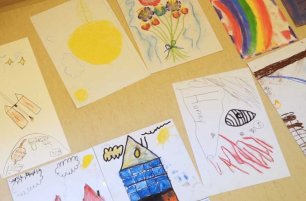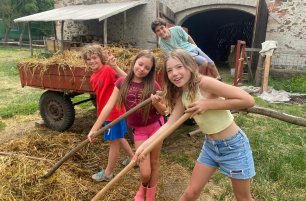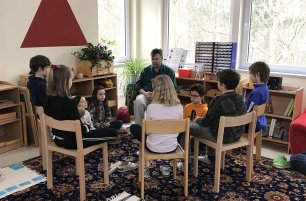Mones
Sorry, this article is only in Czech.

This spring, as part of our Values curriculum and Art Program, we invited TEDx speakers Garret Garrels and Tim Holmes to lead a workshop at IMSP for our Elementary classes.
Read more
An Essential Element of the Elementary Montessori Student Experience
Read more
“At IMSP, we were always taught how to speak to people, to be mindful, to listen to one another, and that really helped when it came to making new friends. Once you have friends, everything else is simple. Everything else, you can figure out.
Read more
“I wanted to secure the best possible education for my children”
Read more
If you visit the Upper Elementary at IMSP on any school day in the late morning, you would hear a gentle bell ring at around 11:20. The students clean-up, and by 11:30, they gather on the classroom carpet and light a candle. A teacher sets a timer. At the sound of a bell, they begin their 5-minute awareness/mindfulness practice.
Read more